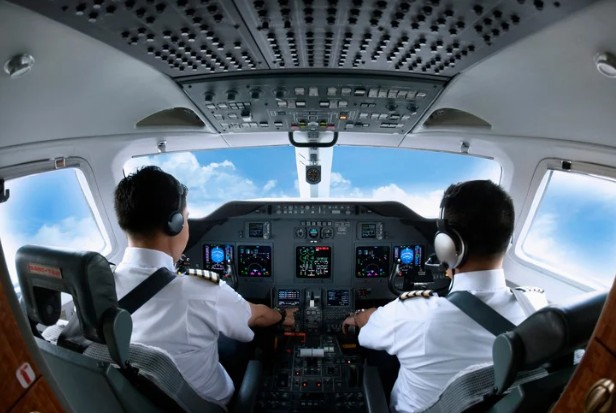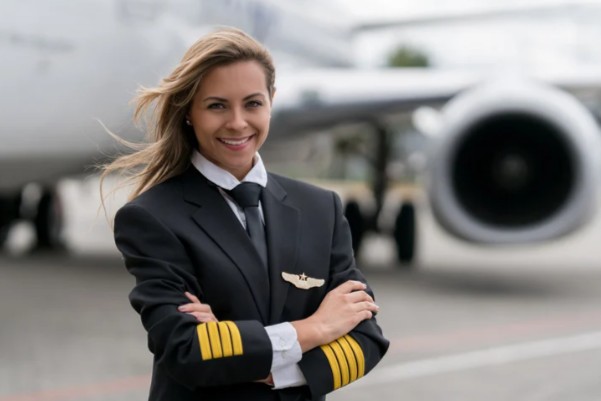Becoming a successful pilot requires more than just logging flight hours and memorizing procedures. It demands a mix of technical skill, sound decision-making, and an understanding of human factors.
Whether you’re a novice aviator or preparing to enroll in a pilot school in Dallas, developing these key skills is essential for thriving in the cockpit.
1. Situational Awareness
Situational awareness means understanding everything happening around you. For pilots, this involves knowing your aircraft’s position, weather, nearby traffic, and system status. This skill prevents accidents, especially in rapidly changing conditions.

To develop it, students in any pilot training program must accurately read instruments, listen to radio communications, and process information quickly. In busy airspace and varying weather, constant awareness is crucial for safety.
2. Communication Skills
Pilots need clear, effective communication. Coordinating with air traffic control, co-pilots, or ground staff requires precise message delivery and reception, directly impacting safety and efficiency.
Pilot training programs teach students standard phraseology, how to avoid ambiguity, and maintain composure under stress. Practicing professional, assertive communication early is crucial for a flying career.
3. Decision-Making Under Pressure
Pilots must often make quick decisions, whether it’s responding to an engine warning light, a sudden weather change, or a need to divert the flight path.
Knowing how to stay calm and evaluate options under pressure is a vital skill. Flight training emphasizes decision-making models like the DECIDE framework or OODA loop to help students navigate uncertainty. This ability is especially critical in a busy aviation hub where diverse flying conditions can arise.
4. Attention to Detail
Pilots manage many tasks, all demanding precision. From pre-flight checklists to fuel calculations, small oversights can have serious consequences. Pilots must develop a meticulous mindset early in training.
A reputable pilot school will teach strict procedures and thorough cross-checking. Cultivating the habit of checking every switch, button, and entry ensures safe, reliable operations on every flight.
5. Hand-Eye Coordination

Smooth aircraft control demands excellent hand-eye coordination. Pilots must precisely translate visual cues into physical actions, whether adjusting altitude, lining up with a runway, or handling turbulence.
Both flight simulators and actual flight time are crucial for honing these motor skills. Regular practice in diverse real-world flying conditions, particularly at varied airfields, builds confident and responsive pilots.
6. Multitasking
In the cockpit, pilots juggle multiple tasks simultaneously—navigating, monitoring systems, communicating with ATC, and updating instruments.
Maintaining focus on critical tasks is essential, and flight schools place a strong emphasis on time management and task prioritization.
Pilots are trained to scan instruments efficiently, manage workloads effectively, and focus appropriately without feeling overwhelmed.
7. Emotional Control and Stress Management
Flying can bring moments of intense emotion, whether due to bad weather, turbulence, or system issues. How you manage these emotions directly affects flight safety.
Staying calm and focused helps ensure rational decision-making. Pilot training includes stress management techniques and emergency simulations. Instructors teach strategies to control adrenaline and anxiety using proper breathing, checklists, and mental framing.
8. Lifelong Learning and Adaptability
The aviation industry constantly evolves with new technologies, systems, and regulations. A good pilot never stops learning.
Whether mastering a new aircraft or staying updated on FAA changes, continuous learning is essential. Programs often provide access to advanced simulators, modern aircraft, and current curricula, helping pilots stay ahead. Cultivating adaptability and a learning mindset ensures long-term success.
Conclusion
Becoming a pilot involves more than just flying. It requires mastering technical and soft skills to ensure safe, efficient, and professional flights. If you’re considering flight training, a pilot school offers a strong, hands-on foundation to develop these essential skills. With the right training and commitment, you’ll be ready to fly with confidence.










